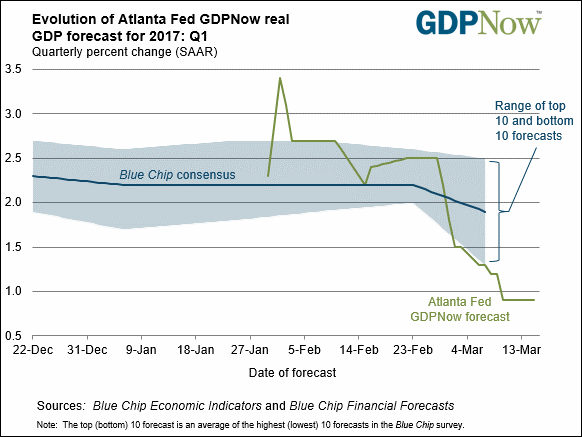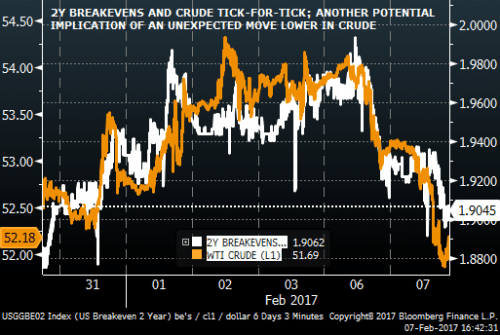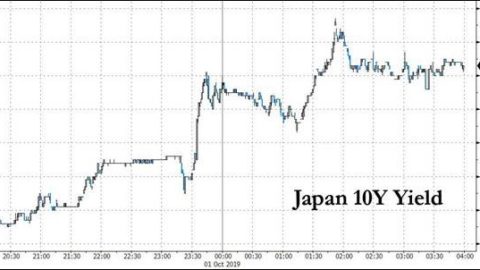Banks, European ones in particular, may play a central role in the post Brexit world.
A lot of attention has been drawn onto systematically important banks since the financial crisis took place. Rightly so: they played a decisive role as a contagion vector.
Contagion as a whole could be regarded as one of the most important risks of the Brexit issue.
No wonder then if a salvo of regulatory checks, controls and rulings is taking place at this critical juncture.
This note covers some of them. We believe that their timing provides a robust testimony of the systemic forces at play.
IMF Financial Sector Assessment Program, Germany
As a first example please consider the “Germany, Financial System Stability Assessment” by the IMF.
The IMF reviews the systemic dynamics of the German financial sector, in particular some of its key constituents such as Deutsche Bank.
In every aspect, DB receives an unusual amount of disclaimers throughout the document:
|
“Repeated fines for involvement in the systematic manipulation of benchmarks, misleading regulators, and violating U.S. restrictions on conducting business with sanctioned countries, hit Deutsche Bank’s bottom line and may be indicative of corporate governance issues.” |
About domestic spill-overs risks, the report adds:
“Domestically, the largest German banks and insurance companies are highly interconnected (Figure 14). The highest degree of interconnectedness can be found between Allianz, Munich Re, Hannover Re, Deutsche Bank, Commerzbank and Aareal bank, with Allianz being the largest contributor to systemic risks among the publicly-traded German financials.16 Both Deutsche Bank and Commerzbank are the source of outward spillovers to most other publicly-listed banks and insurers. Given the likelihood of distress spillovers between banks and life insurers, close monitoring and continued systemic risk analysis by authorities is warranted.” |
Along the same line, global systemic risks are also considered:
“Among the G-SIBs, Deutsche Bank appears to be the most important net contributor to systemic risks, followed by HSBC and Credit Suisse (Figure 15) … The relative importance of Deutsche Bank underscores the importance of risk management, intense supervision of G-SIBs and the close monitoring of their cross-border exposures, as well as rapidly completing capacity to implement the new resolution regime.” |
Fed’s stress tests and CCAR
Almost at the same time, the US Federal Reserve issues its ‘Comprehensive Capital Analysis and Review 2016: Assessment Framework and Results” which hosts the well-known Dodd-Frank stress test results.
The latter are commented by the FT. Please consider “Deutsche Bank and Santander fail Fed stress test again”:
“Deutsche Bank and Santander have again failed the Federal Reserve’s stress tests, as regulators rejected their proposed payouts to shareholders even as US banks were given the goahead for dividends and share buybacks.” “Thirty US banks passed the stress tests, but among them Morgan Stanley did not escape censure as the central bank ordered it to address certain weaknesses and resubmit its capital plan by the end of 2016.”“Overall, the Fed said most big lenders did better in the stress tests than in 2015. But it noted that many still fell short of regulators’ expectations in their understanding of likely vulnerabilities in a crisis and their internal controls for capital planning.” |
As ZeroHedge points out in “Futures Spike After Banks Unveil Tens Of Billions In Buybacks”, a deluge of share repurchases is expected to unfold.
Italian banks: Atlas and the burden of non-performing loans
Troubled European banks are also affected by the Brexit waves. Mike Shedlock gives an interesting reading of the bail-out / bail-in bargain that is taking place in the Italian banking sector. As a reminder, Italy launched the idea of a EUR 5bn public-private fund called Atlas as a mean to relieve the pressure of non-performing loans. The idea briefly resurfaced after the UK referendum, but was rapidly shut down. Please review “Italy’s Zombie Banks on Death Bed, BailIns Coming”.
Propositions
– The reports and stress tests above should be considered in a new, post Brexit environment. They underline the systemic nature of European banks as a contagion vector ;
– Contagion, be it financial, political or real could play a decisive role in the post Brexit world ;
– Financial contagion is expected to unwind as banks face heavy fundamental headwinds ;
– Regulatory decisions may be used to tame these effects ;
– In some cases they open the way to dividend payments and share buy-backs. This may temporarily reignite a carry trade mechanism ;
– The relative performance of the European banking sector may provide a leading picture of the post Brexit landscape.
Jacques








